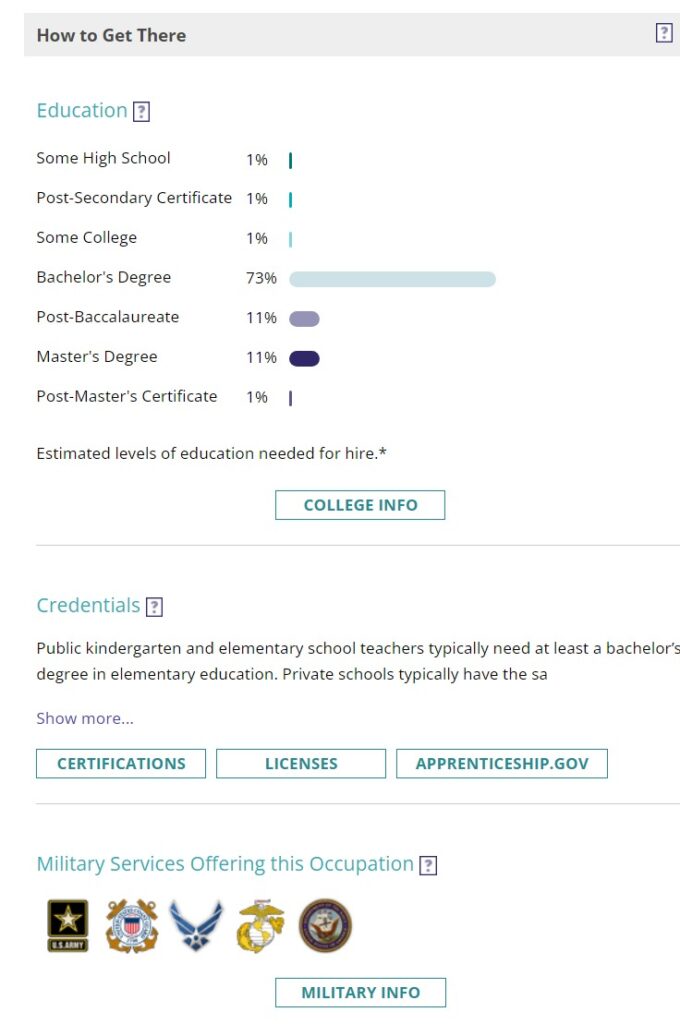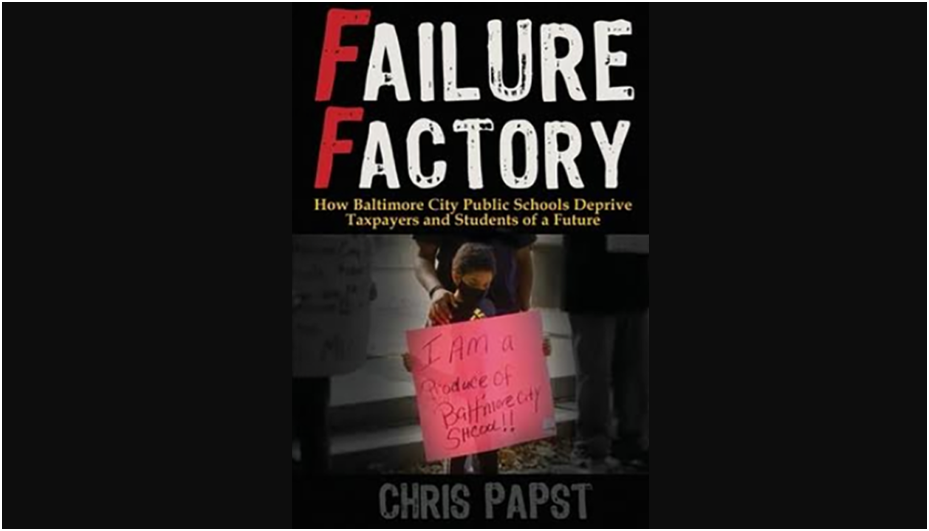
125 Philosophical Questions To Encourage Critical Thinking and Self-Exploration
Our world is full of mysteries—why not try to solve a few? One of the most incredible ways to encourage critical thinking and self-exploration is to ask kids thought-provoking questions. Hearing the responses and exchanging ideas can really expand our perspectives and leave us with important food for thought. Want to try? Here are some philosophical questions to share with students in the classroom.
What Is a Philosophical Question?
Philosophical questions usually explore human nature, morality, ethics, the origins of the universe, and even the afterlife. These types of questions require deep thinking and don’t usually have straightforward, clear answers. They leave a lot of room for interpretation, which is why they are so interesting and fun!
Fun Philosophical Questions
1. Which really came first, the chicken or the egg?
2. If you’d been given a different name, would you be a different person?
3. Would the world be more peaceful if kids were in charge?
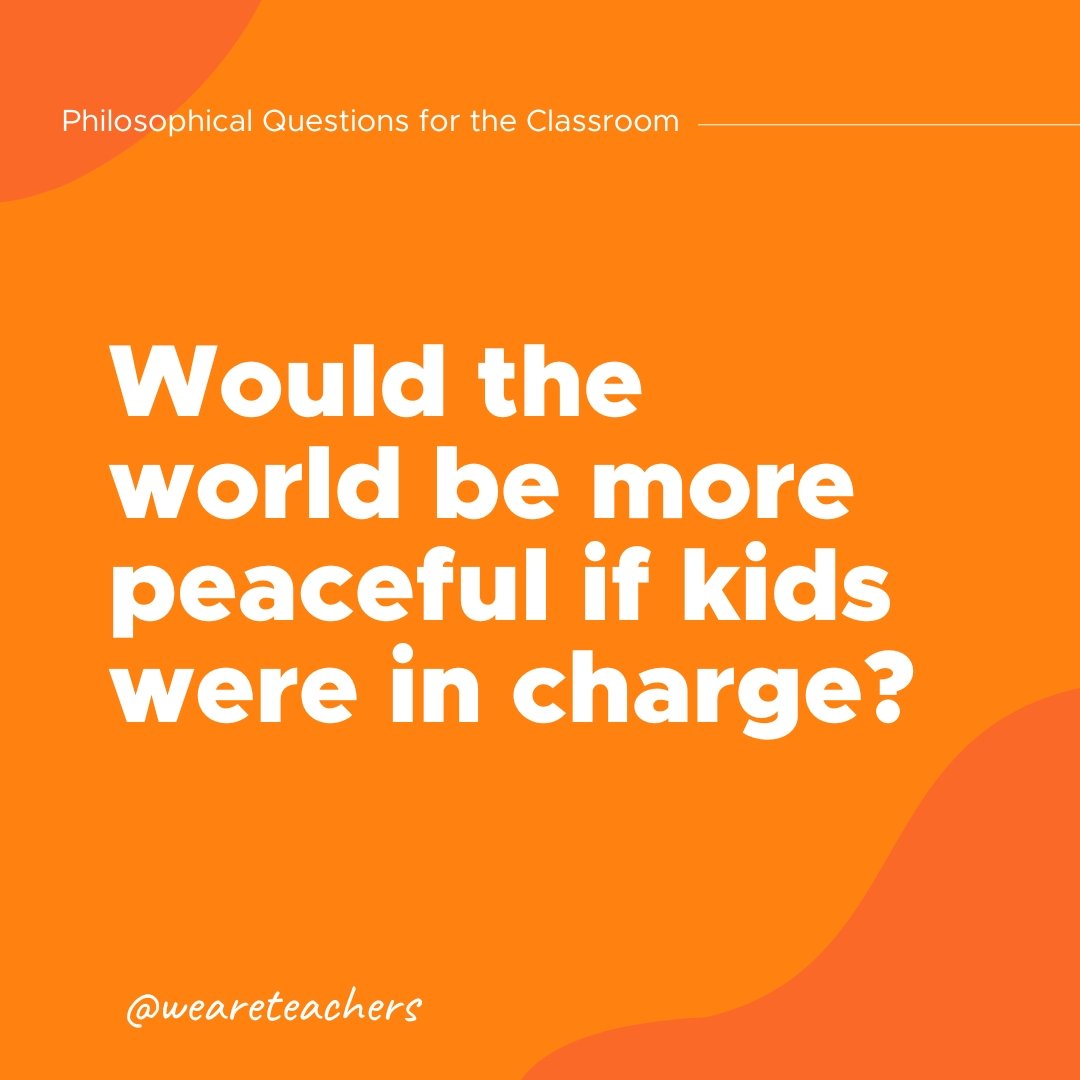
4. What is kindness?
5. Do you think music is a universal language?
6. What does happiness feel like in your mind and body?
7. Can one person really change the world?
8. If it was possible to live forever, would you want to?
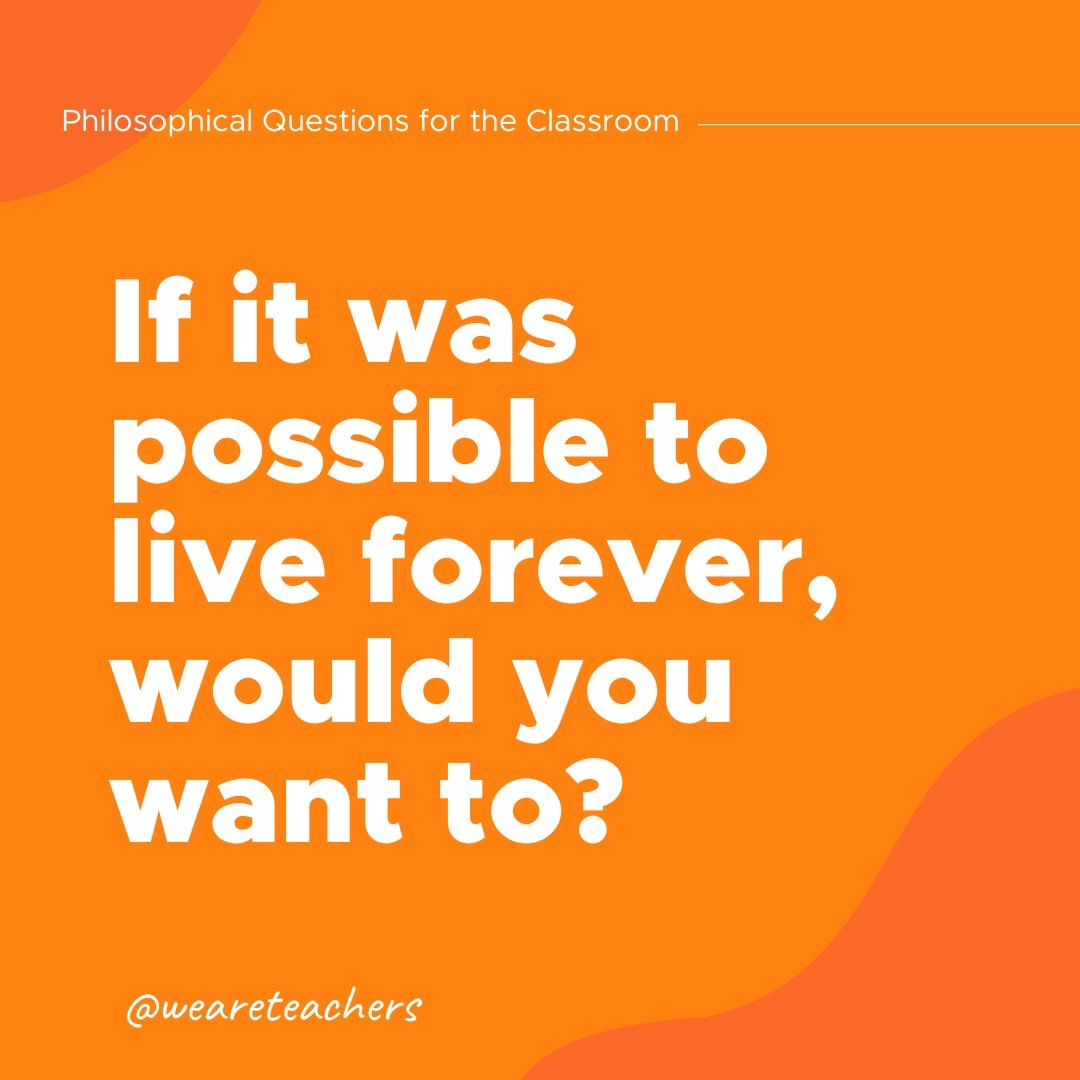
9. If people live in a time zone ahead of us, does this mean they live in the future?
10. Can a person be happy and sad at the same time?
Philosophical Questions About Life & Society
11. What is the meaning of life?
12. What is the biggest issue in our society right now?
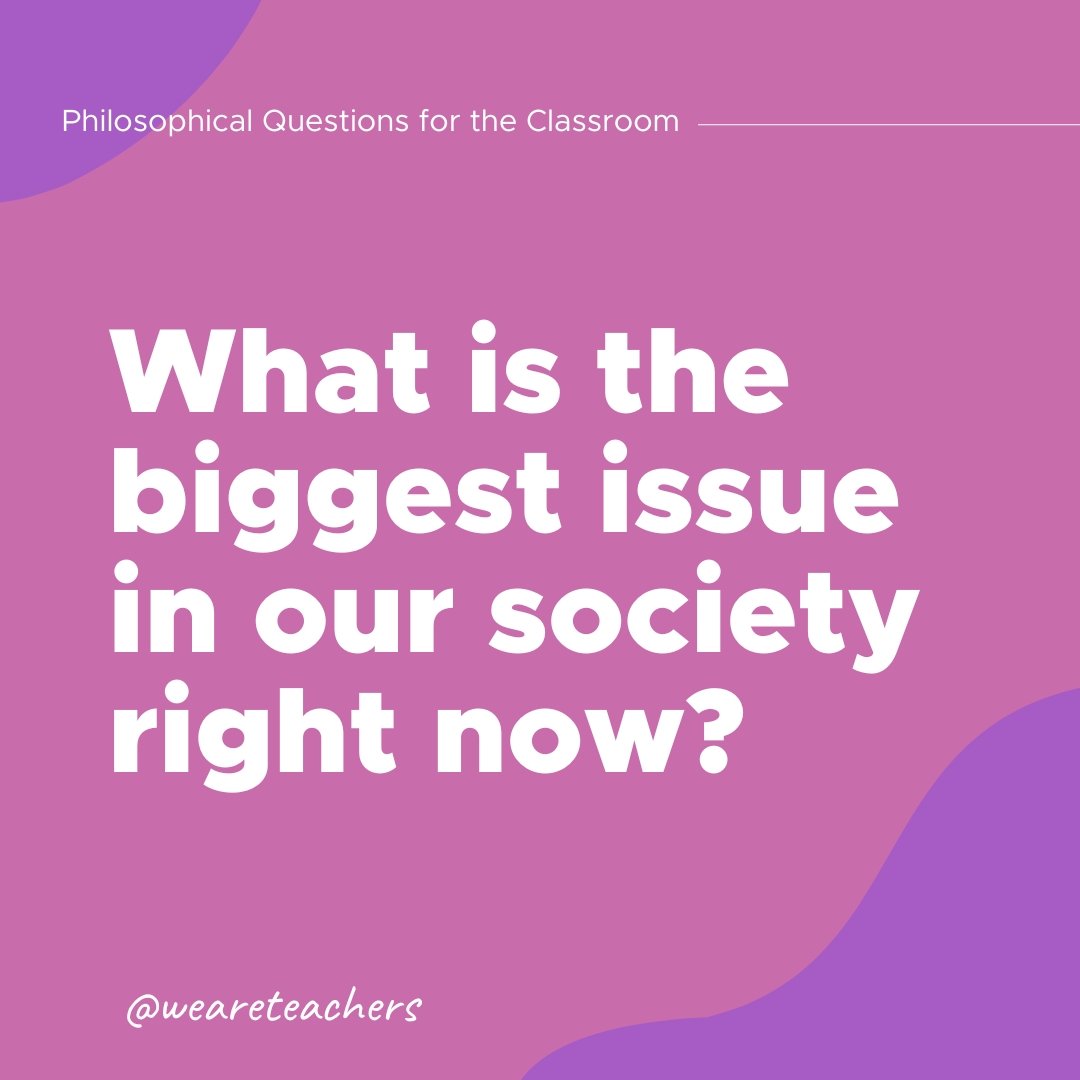
13. What is your vision of the ideal society?
14. Do you think it’s important to conform in society?
15. How can humans improve the world in the next five years?
16. What is the most important thing in life?
17. Are people too greedy?
18. How could the world change for the better?

19. Is failure ever useful?
20. What would life be like if we never experienced pain?
21. Why is it important to help others?
22. What is freedom?
23. Can too much freedom be a bad thing?
24. Should we have to pay for basic needs such as food, water, and shelter?
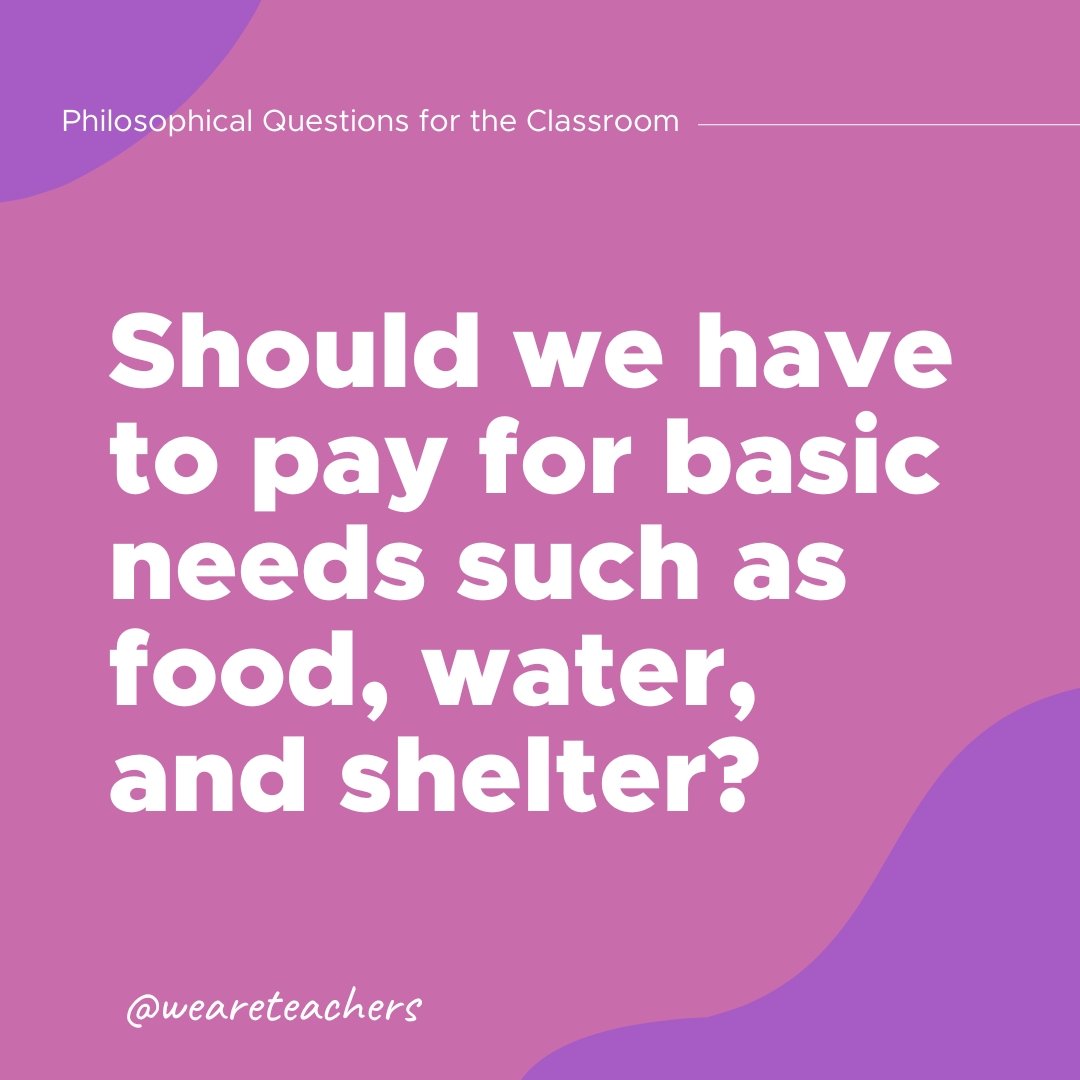
25. Should education be free?
Philosophical Questions About Growing Up
26. When do children become adults?
27. Are adults as curious as kids?
28. At what age does an adult become “old”?
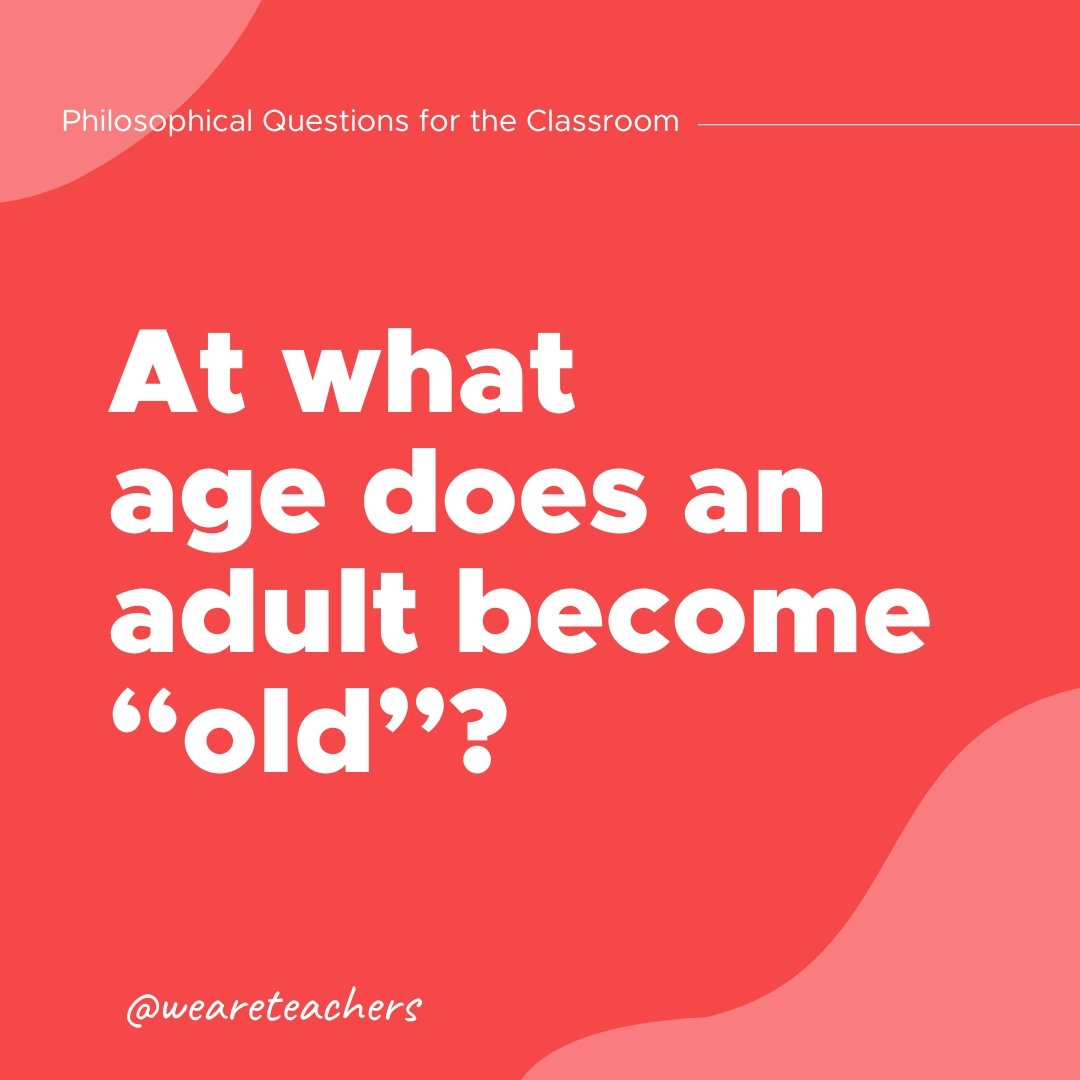
29. What can kids learn from grown-ups?
30. What can grown-ups learn from kids?
31. Do we become wise through age, study, or experience?
32. Does birth order affect people’s personalities?
33. Do people need to have children?
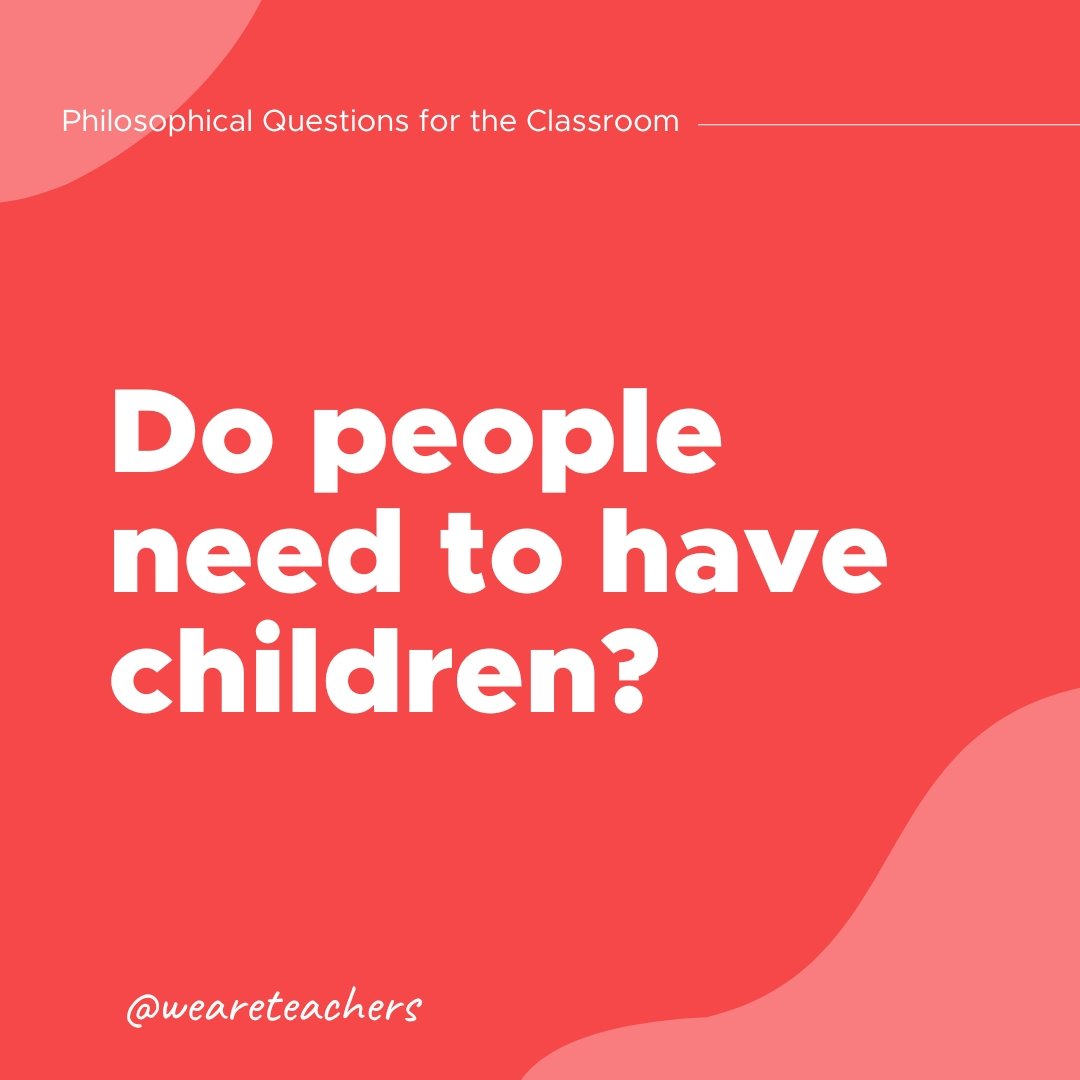
34. If you could give your younger self one piece of life advice, what would it be?
Philosophical Questions About Love & Relationships
35. What is love?
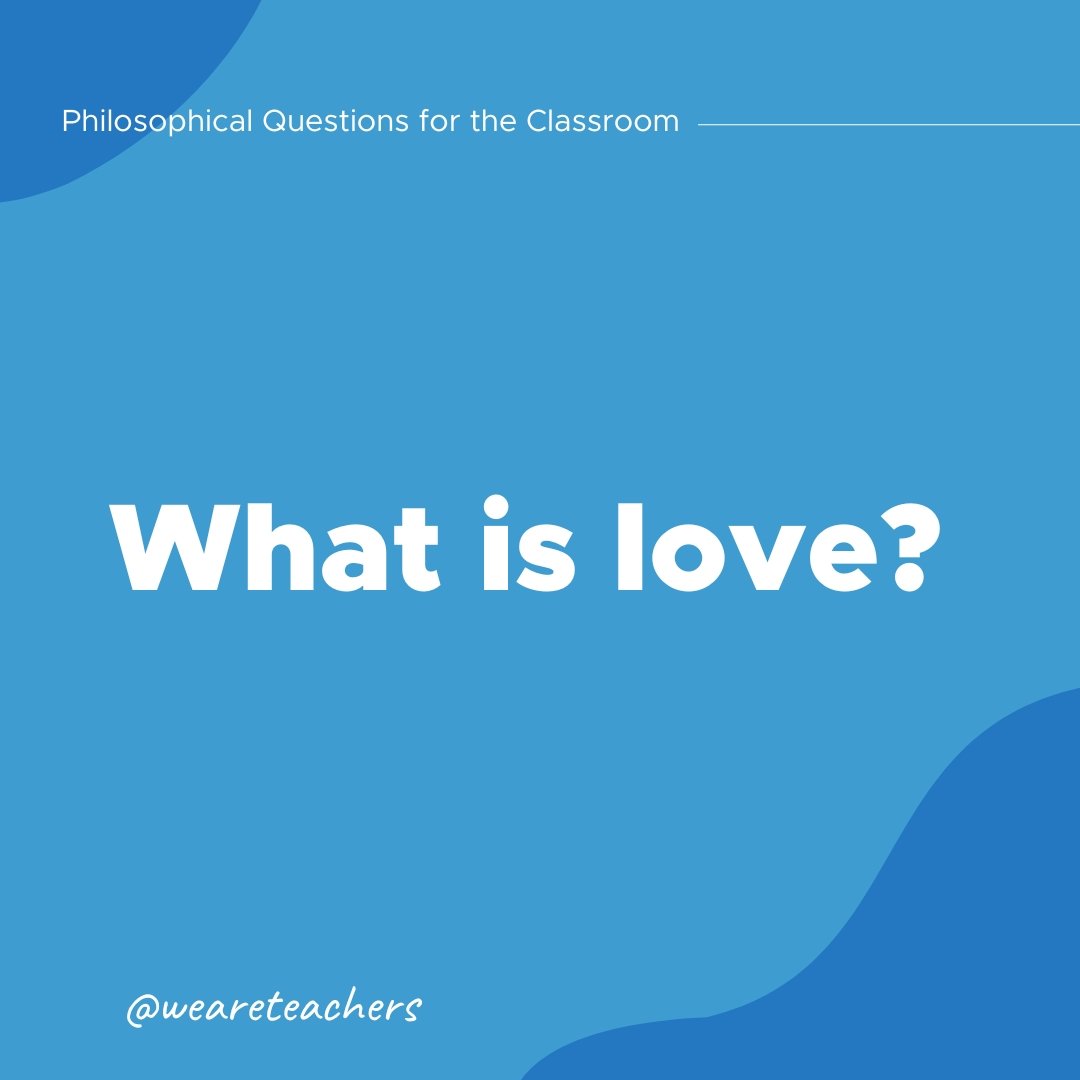
36. Is love about feelings, words, or actions?
37. Does unconditional love really exist?
38. How do you know you are loved?
39. What causes someone to fall in love?
40. What makes a good friend?
41. Are romantic relationships important?
42. Do soulmates exist?
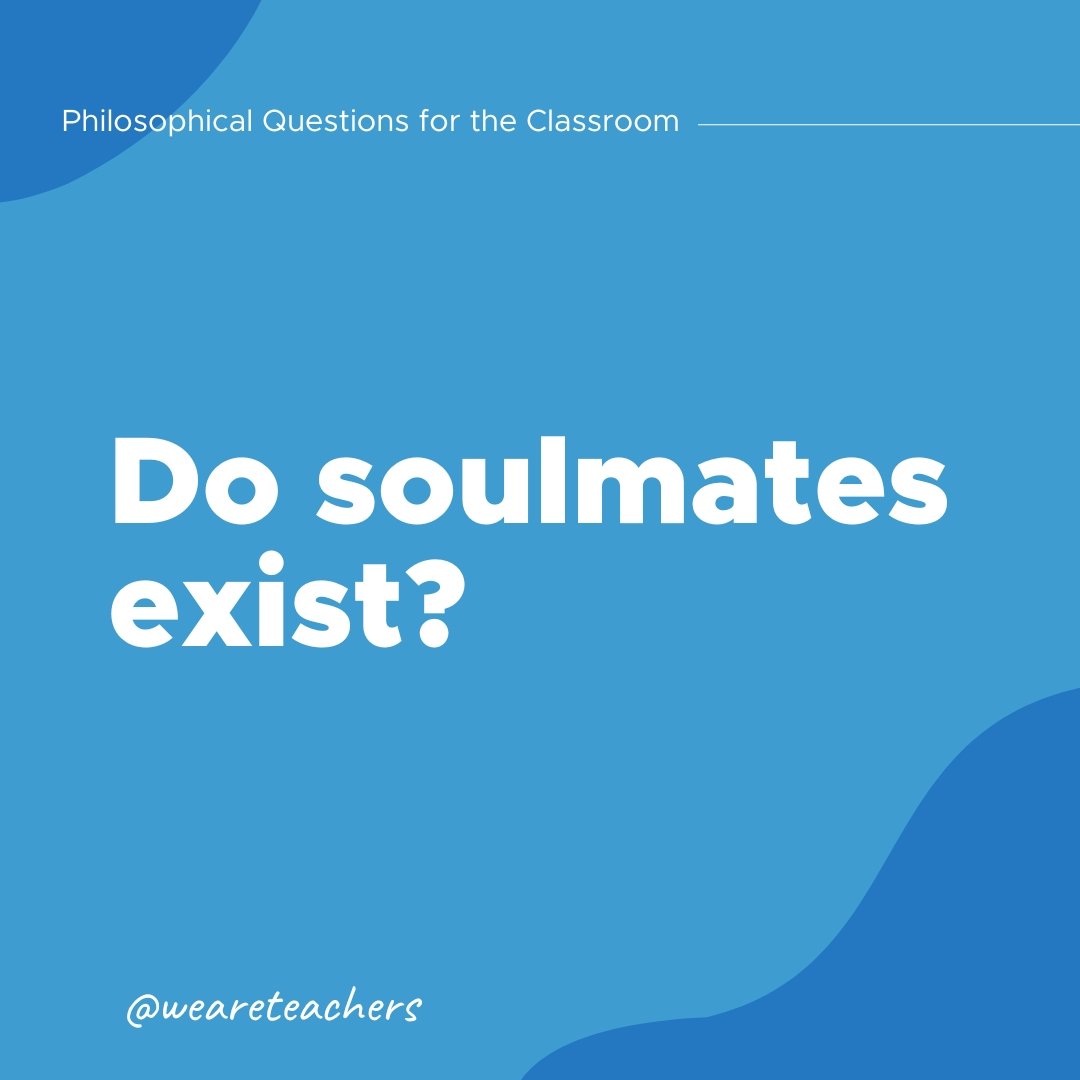
43. Can someone be in love with more than one person?
44. Do you think love at first sight really exists?
45. Is love blind?
46. Can you love others if you don’t love yourself?
47. What makes a relationship last for many years?
48. Do large age gaps matter in a relationship?
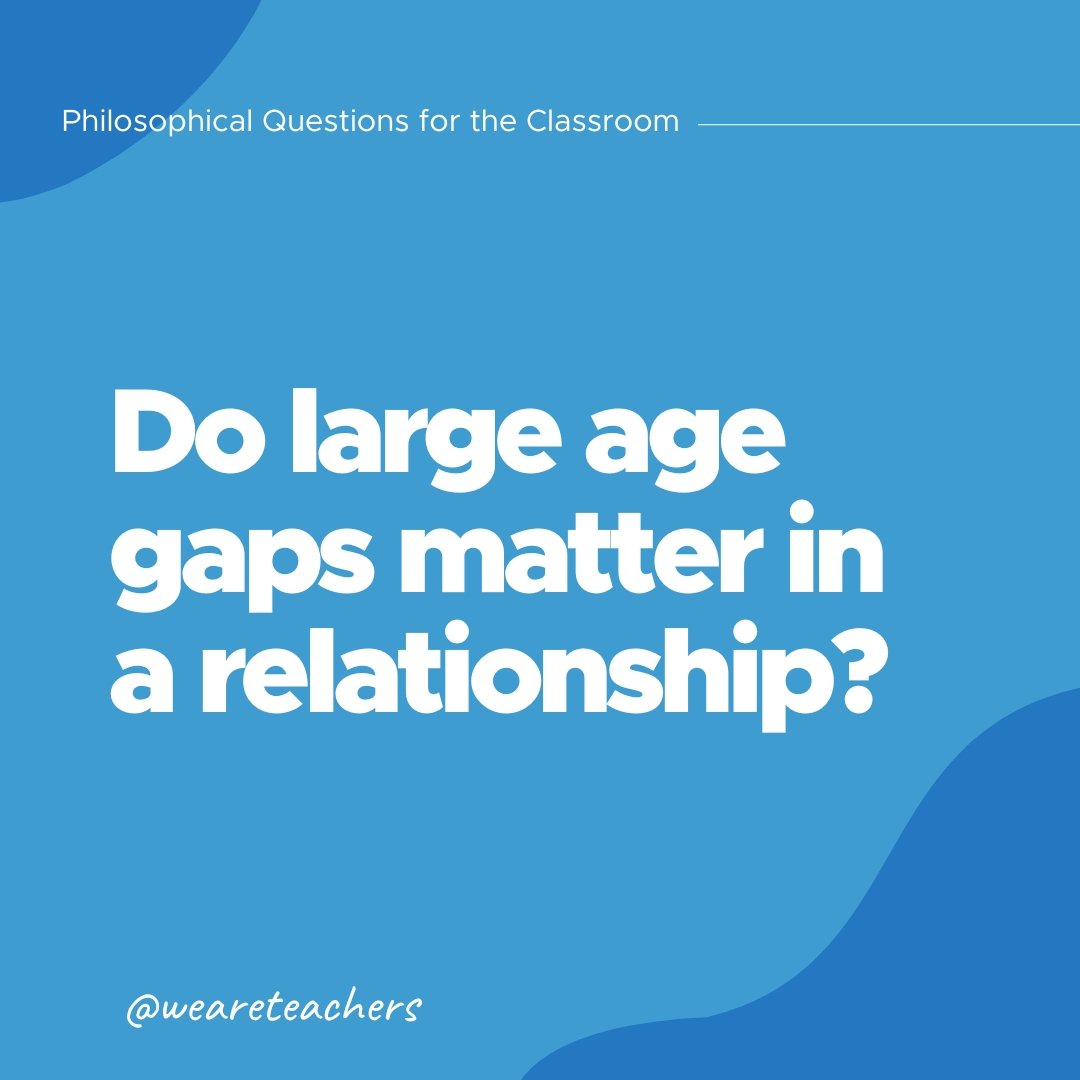
Philosophical Questions About Animals
49. Do humans treat animals properly or do we need to improve?
50. Are dairy and eggs more ethical to eat than meat?
51. What would life be like if animals were dominant over humans?
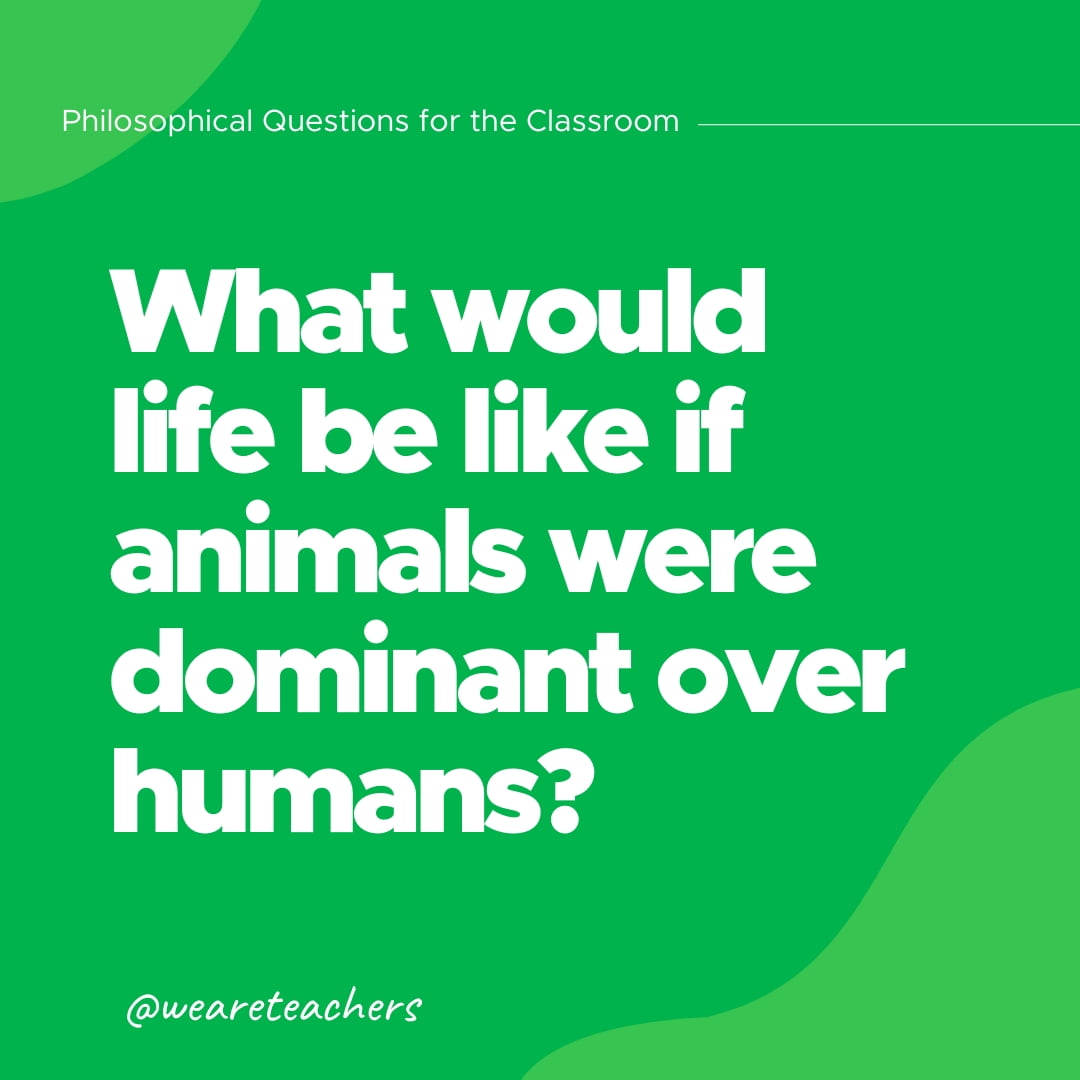
52. Have some animals or creatures walked the Earth that we don’t know about?
53. Do spiders or bugs experience emotional pain?
54. Do animals feel love?
55. Are animals less intelligent than humans?
56. Do animals like being kept as pets?
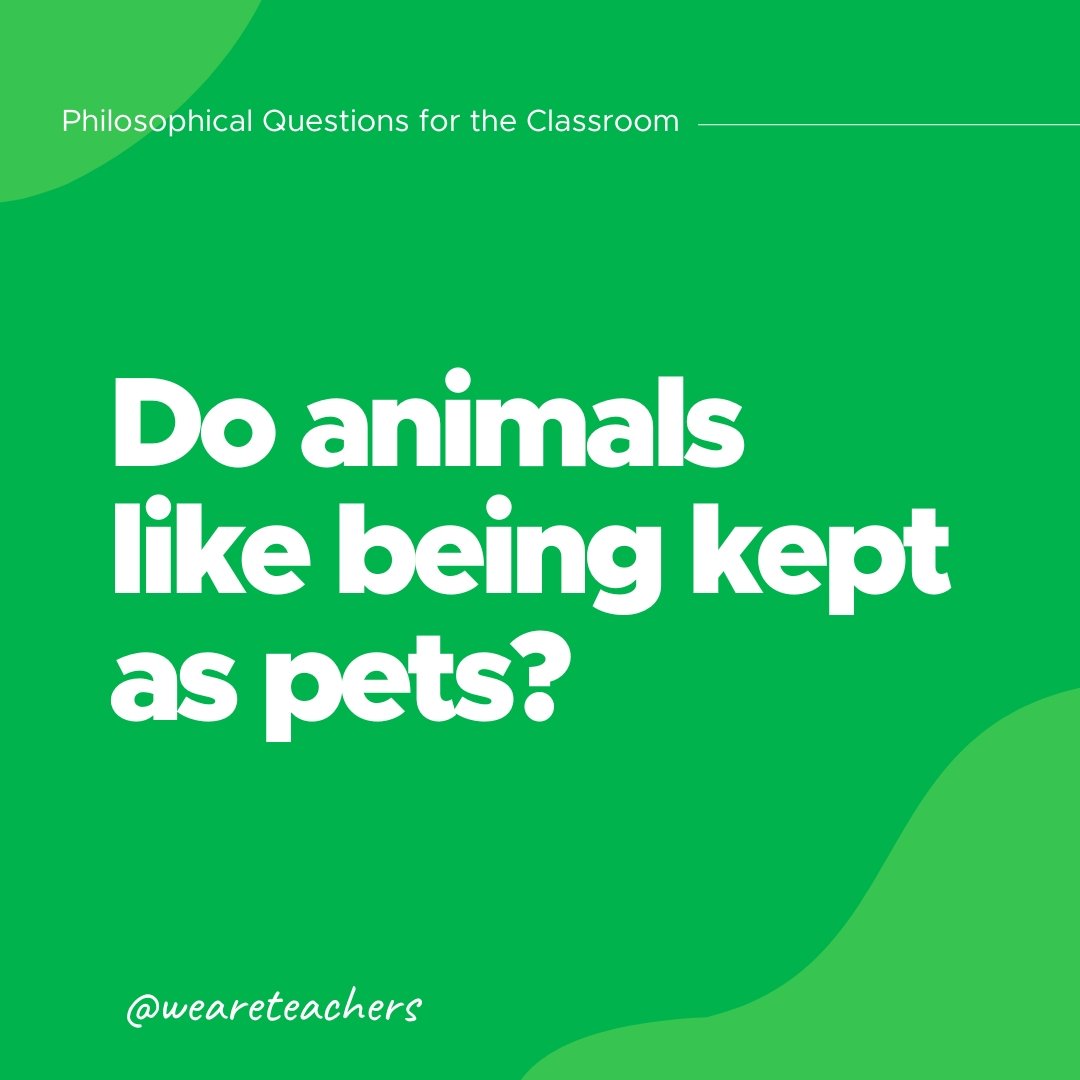
57. Is it OK to kill bugs?
58. Do you think our pets have names for us too?
Philosophical Questions About Death
59. Where does the soul come from?
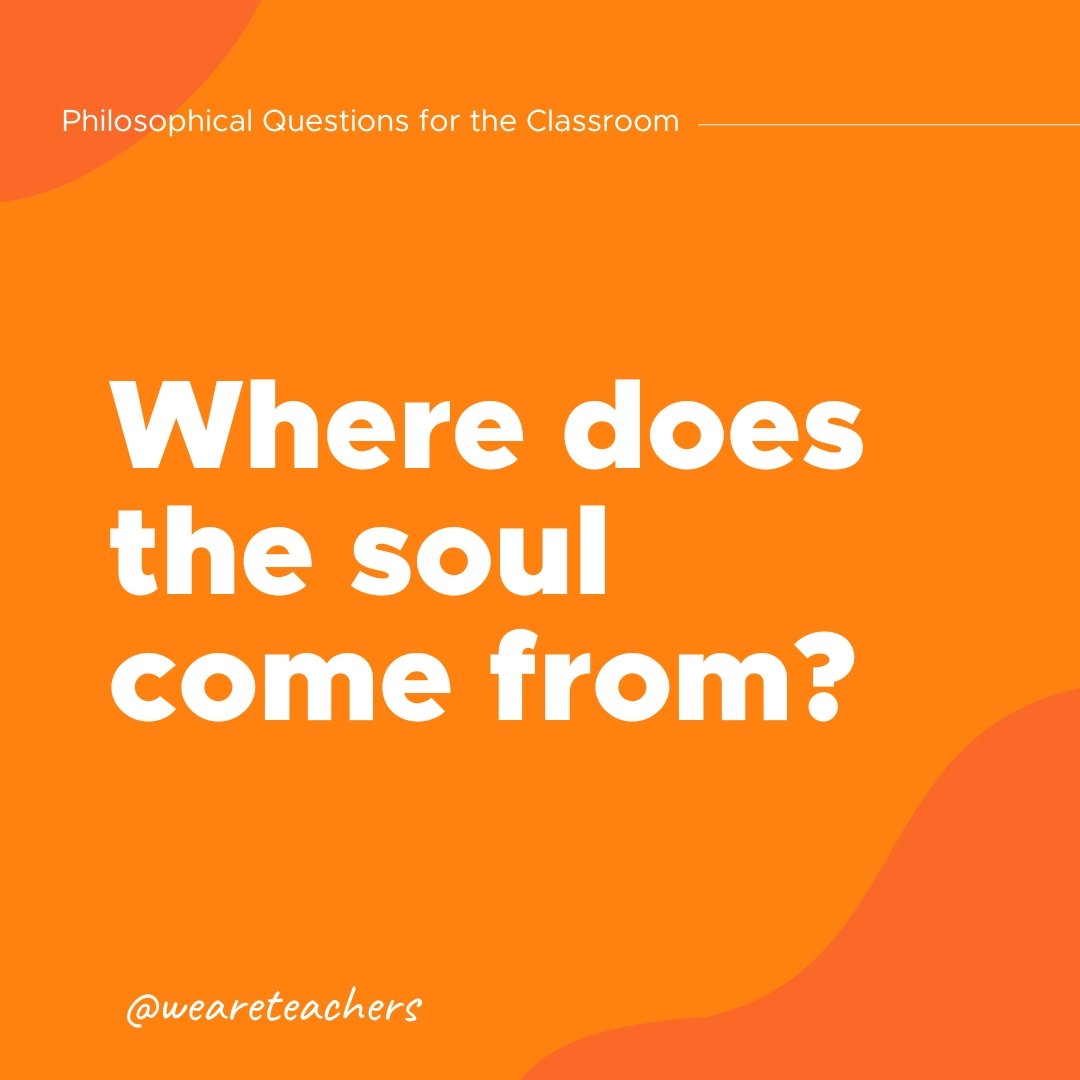
60. Does the soul die when the body does?
61. Do you believe in life after death or reincarnation? Why or why not?
62. What do you believe about this statement: “Everyone dies twice. Once with their body and again the last time someone mentions their name.”?
63. If you only had five years left to live, how would you live differently?
64. Is euthanasia an immoral way to end a life?
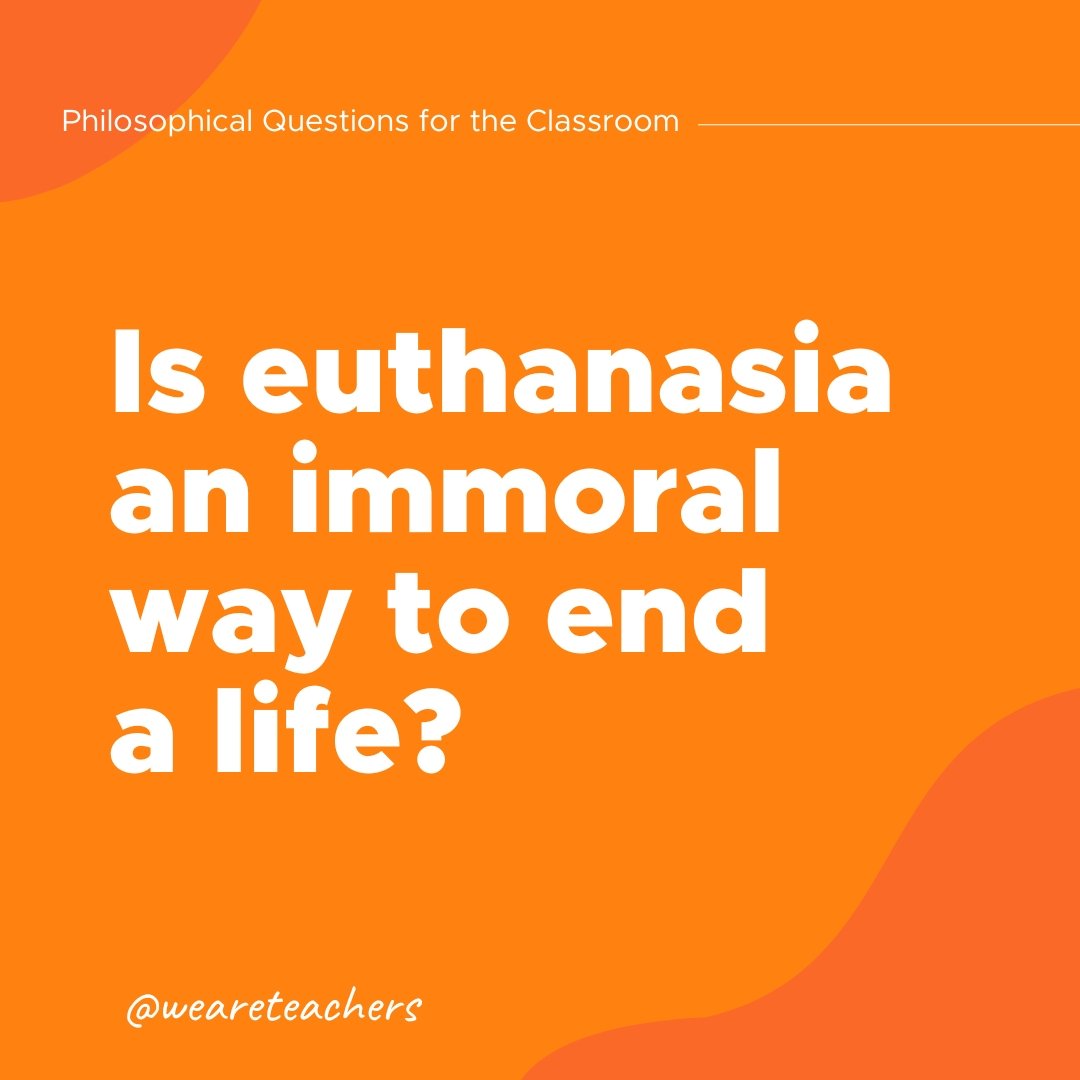
65. Would you ever want to know how or when you were going to die?
66. Should everyone have to be an organ donor?
Philosophical Questions About the Universe
67. Do you believe in life on other planets?
68. Why are we here on Earth?
69. Do you believe in astrology?
70. Are there alternate universes?
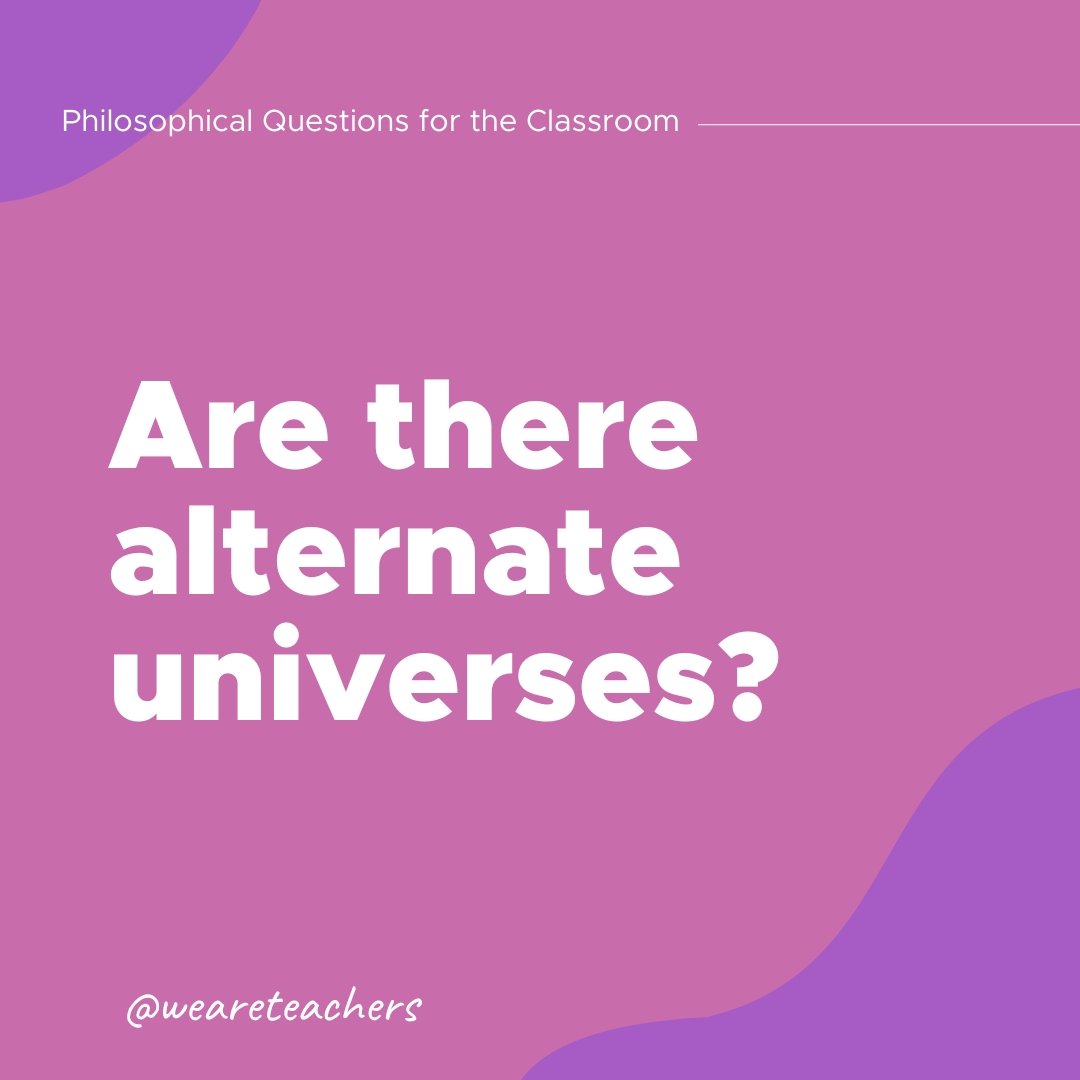
71. Have aliens visited Earth?
72. Should we be spending money to develop space travel?
73. Do you think there could be time travelers living among us right now?
74. If someone could time-travel, would it be ethically wrong to change history?
75. If an advanced life-form from another planet wanted to eat us, would that be wrong considering we eat animals on Earth?

76. What do you think is out in space that we have not discovered yet?
77. If aliens were to come tomorrow, what would you do?
Philosophical Questions About Law & Governance
78. Are equal and fair the same thing?
79. What makes something right and something wrong?
80. Will war ever go away?

81. Is our legal system fair?
82. Is it OK to commit a crime to save another person’s life?
83. Is it OK to steal something to survive?
84. Should the legal drinking age be lower or higher?
85. Should the legal age for driving be lower or higher?
86. Should good healthcare be a universal right?

87. Should people living an unhealthy lifestyle pay more for healthcare?
88. Should there be stricter laws about what goes into our food?
89. If killing someone saved hundreds of other people, would that make it OK?
90. Does power change people?
91. What makes a crime a crime?

92. Should buses have seat belts?
Philosophical Questions About the Paranormal
93. Have you ever had any paranormal or strange experiences that defy explanation?
94. Do you believe in ghosts or spirits?
95. Do humans have extrasensory powers like psychic abilities or telepathy?
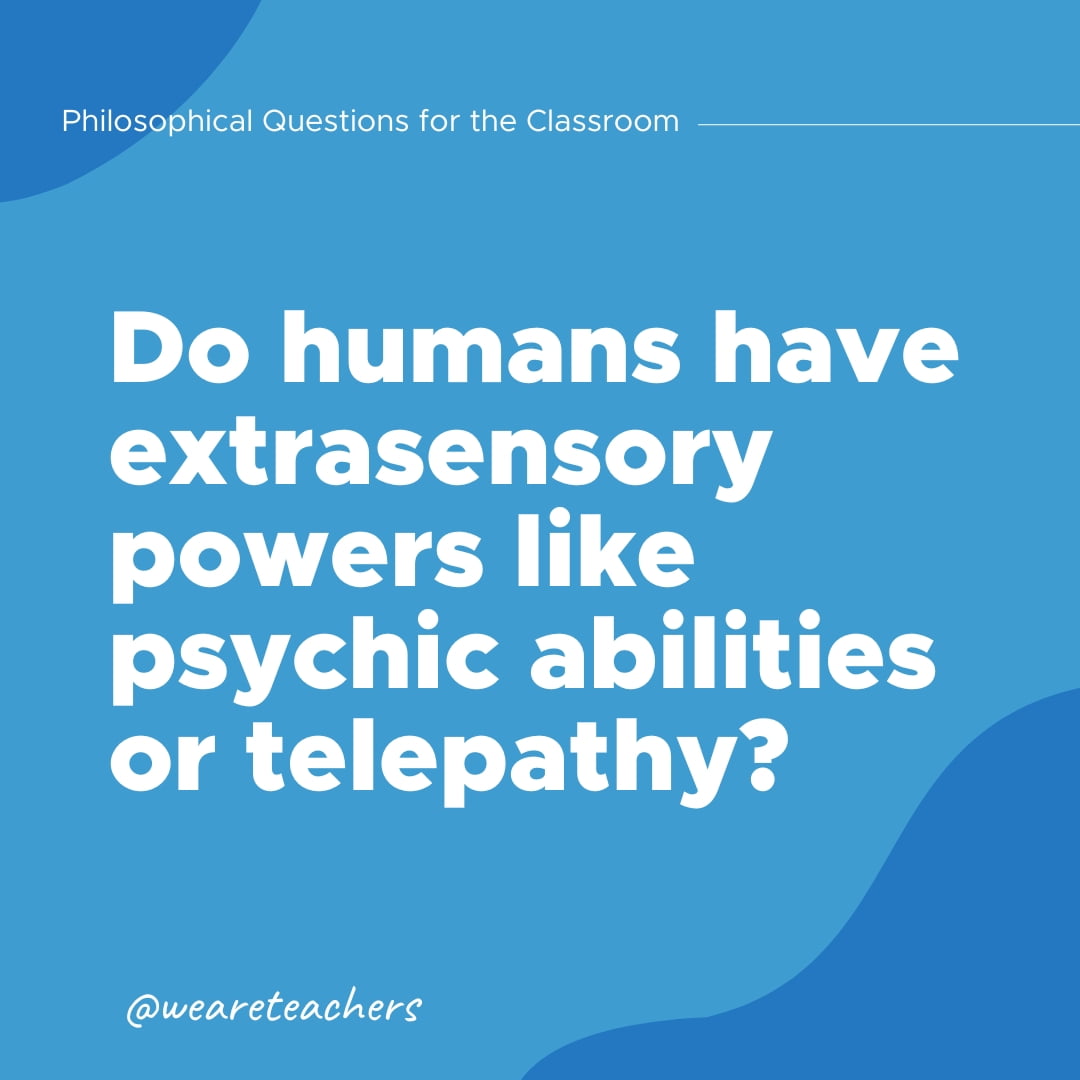
96. Do you believe in miracles?
97. Do you think that life is predetermined or that you choose your own path?
98. Does karma really exist?
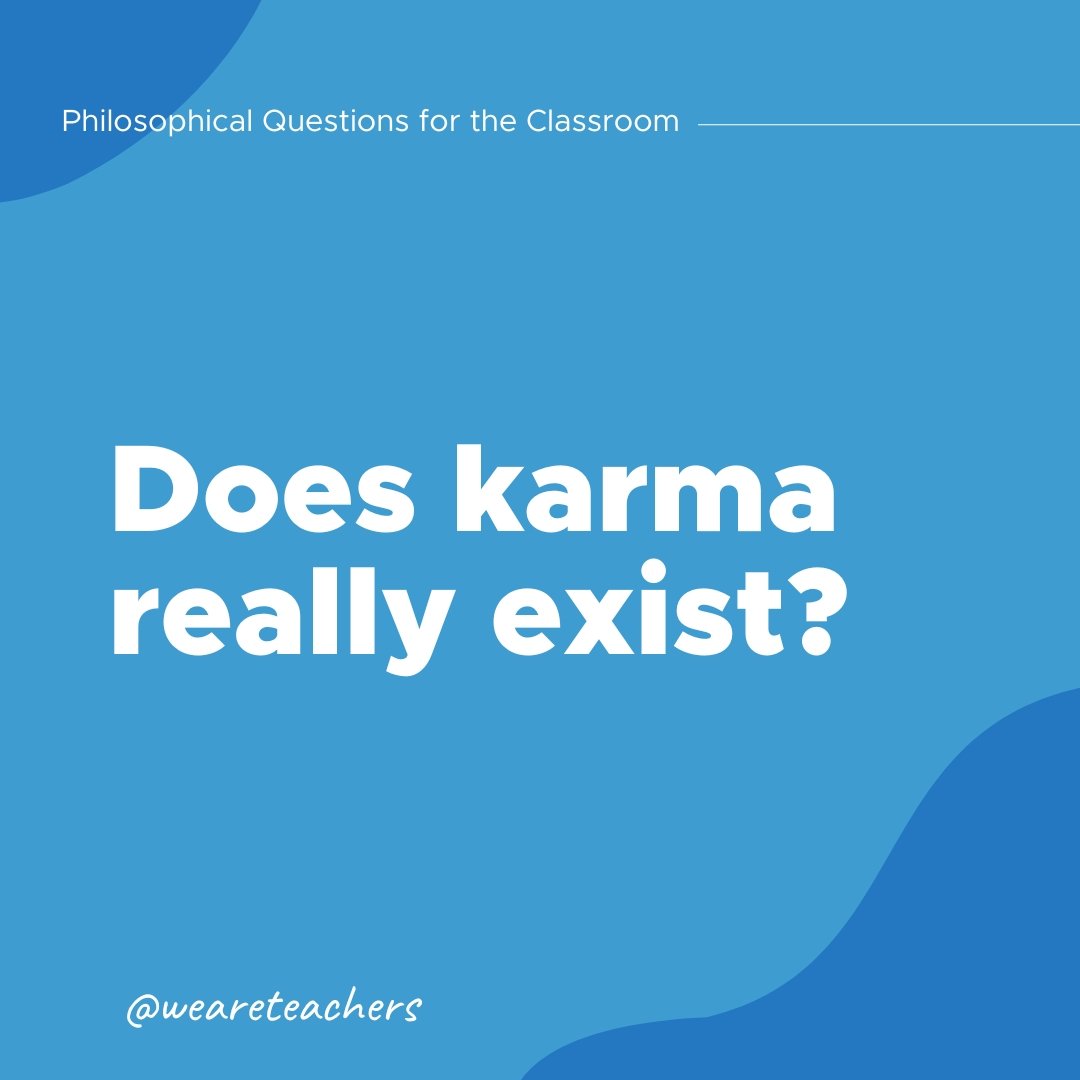
99. Is it possible that paranormal creatures like vampires and werewolves really do exist?
100. Do you believe in the law of attraction?
Philosophical Questions About Science & Technology
101. What has been the greatest advancement or invention of our time?
102. Can robots develop emotions, consciousness, or morality?
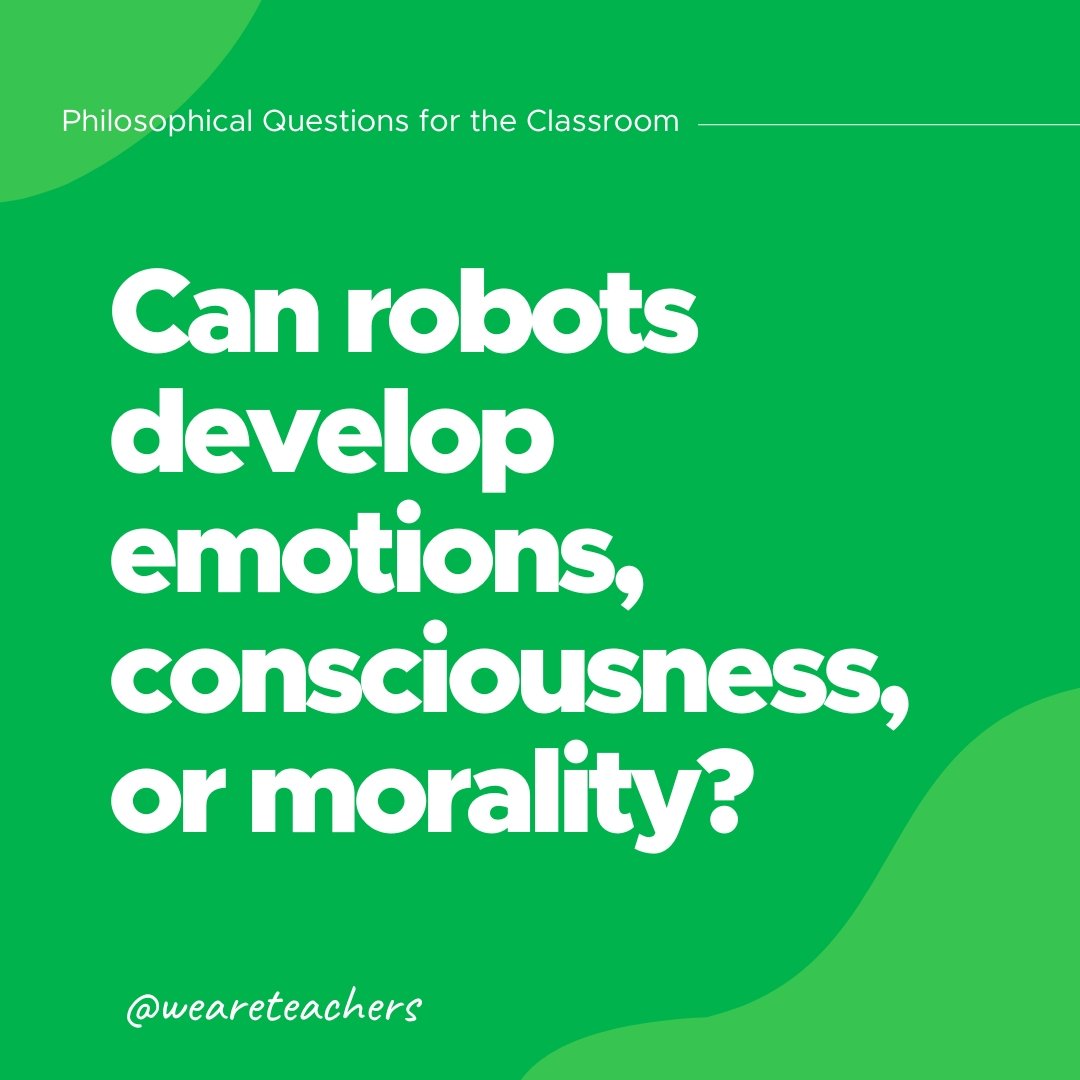
103. Are you controlling your technology or is your technology controlling you?
104. Is social media a good thing in our society?
105. Why is it so easy to spread misinformation on social media?
106. Do you think the environment is in danger?
107. Do you think that technology is advancing us or destroying us?
108. Is time travel possible?
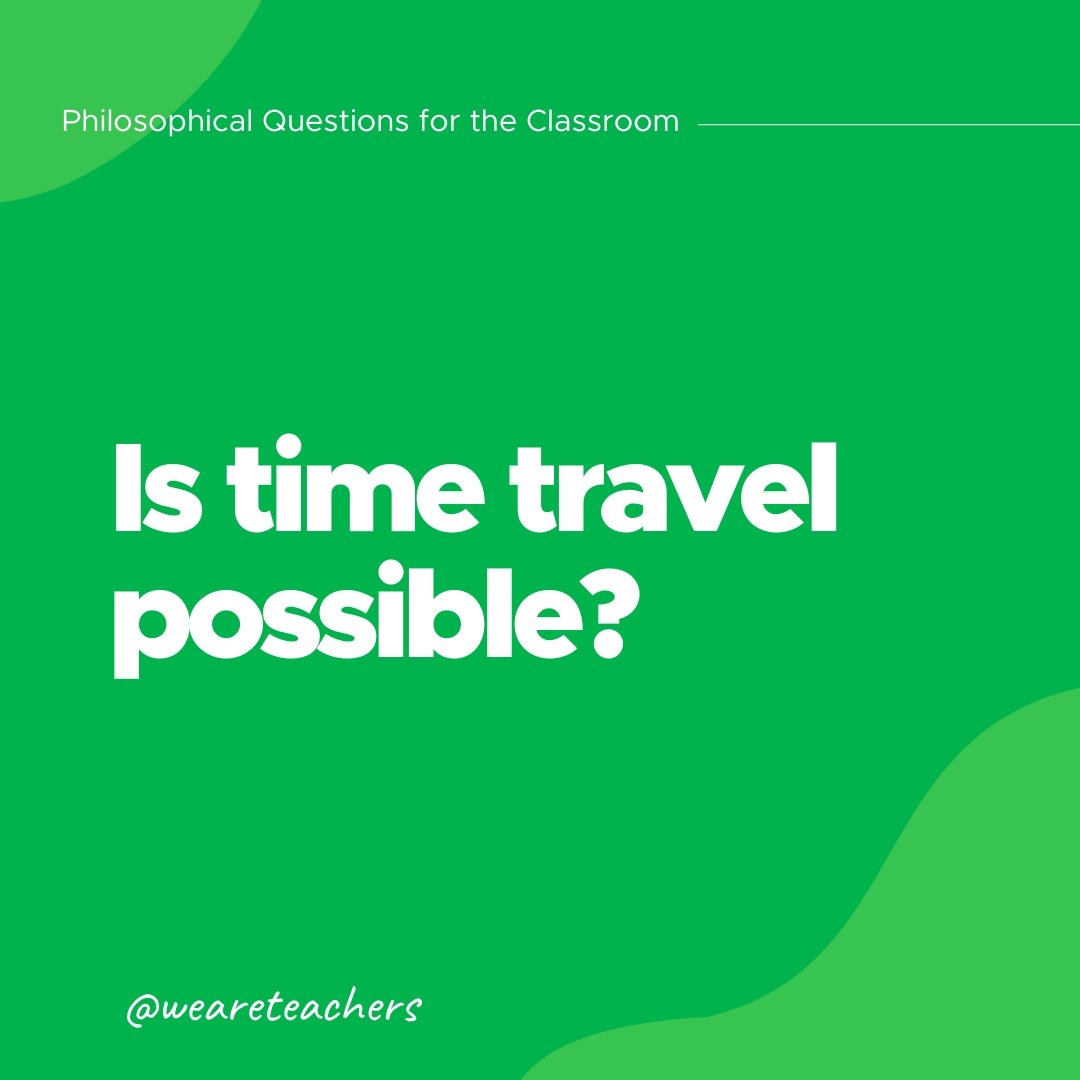
109. Will climate change affect us in the future?
110. Is technology making us more polarized or more open in our thinking?
111. Is technology gathering too much of our information?
Tough Philosophical Questions
112. Can people change?
113. What makes someone human?
114. Is hope essential to life?
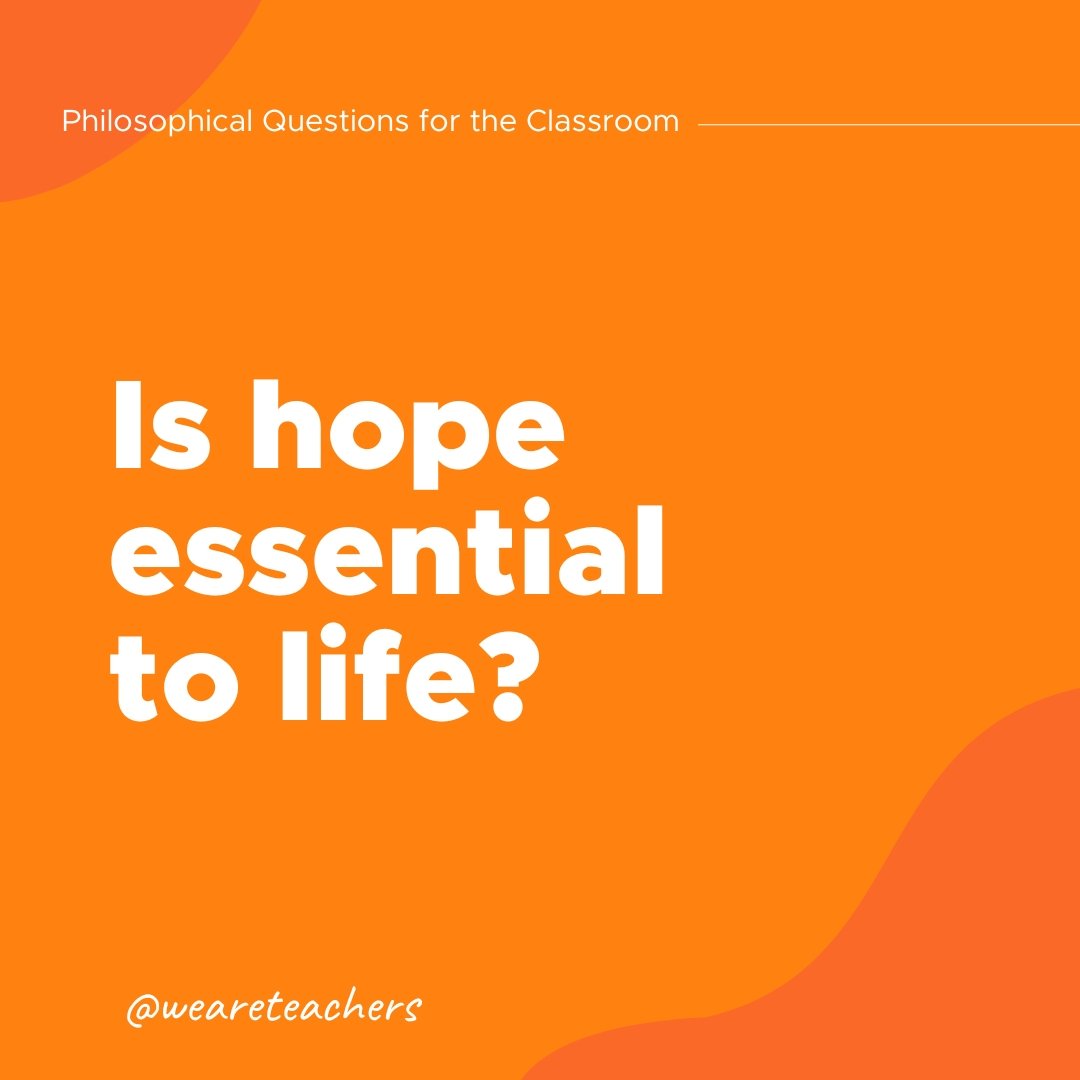
115. What is intuition (your gut feeling)?
116. Why are we so afraid of the unknown?
117. Is there only one truth or can it be different for everyone?
118. Do we need good and evil to coexist in life?
119. What are dreams?

120. Is it possible to be in the wrong place at the right time?
121. Should wealthy people leave their money to their family or give it to charity?
122. Is lying ever OK?
123. Will life as we know it end someday?
124. Why do we remember things we should forget and forget things we want to remember?
125. Where do our thoughts come from?
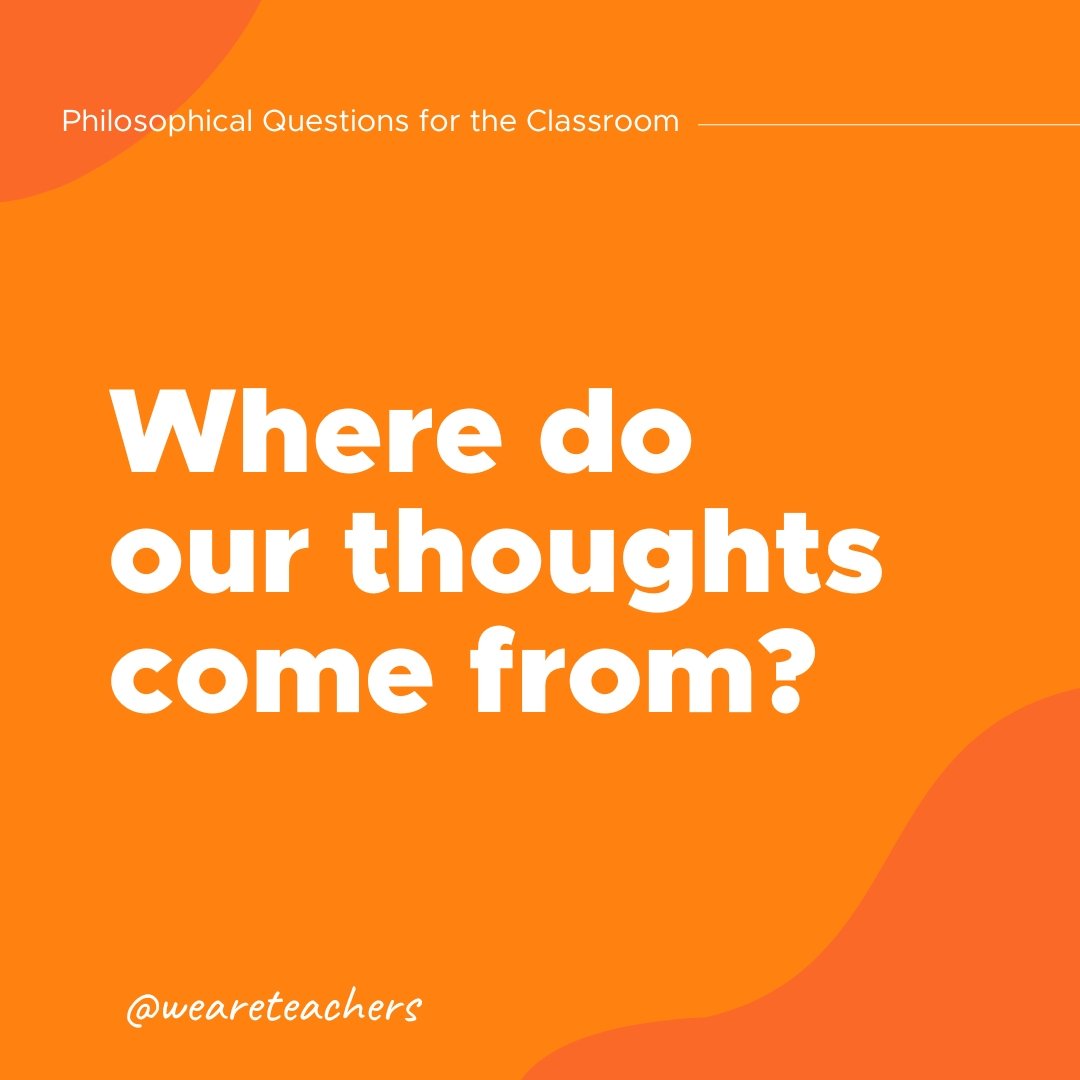
What are your favorite philosophical questions? Come share on the WeAreTeachers HELPLINE group on Facebook!
Plus, check out 100+ Fun Icebreaker Questions for Kids and Teens.
Dig Deeper With Our Longreads
Newsletter Sign up to get our best longform features, investigations, and thought-provoking essays, in your inbox every Sunday.
The MEN was founded by John Huber in the fall of 2020. It was founded to provide a platform for expert opinion and commentary on current issues that directly or indirectly affect education. All opinions are valued and accepted providing they are expressed in a professional manner. The Maryland Education Network consists of Blogs, Videos, and other interaction among the K-12 community.








